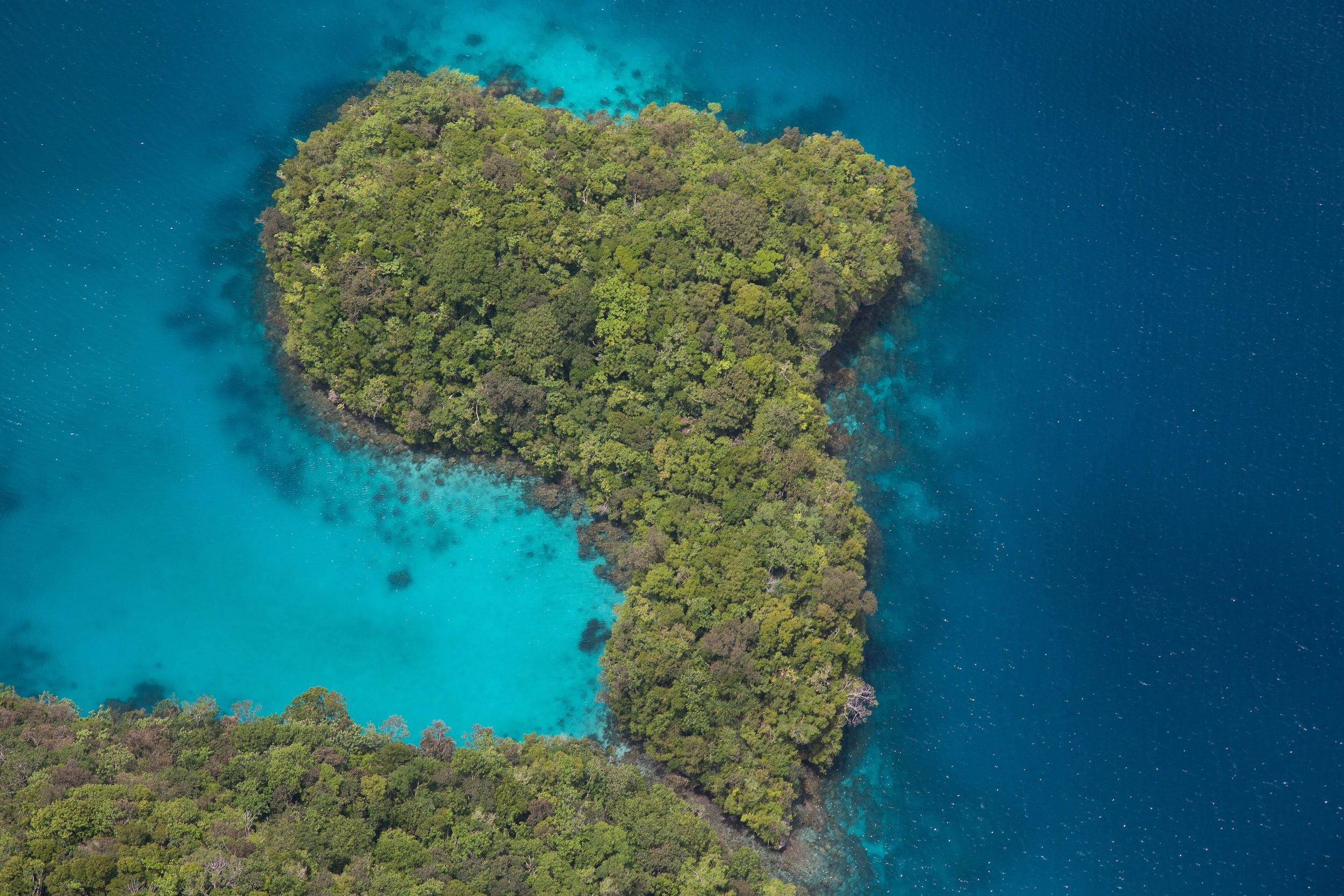
Leaders applaud President Biden’s support of a national marine sanctuary process for the Pacific Remote Islands
This press release was originally published by the Pacific Remote Islands Coalition on March 21, 2022.
Pacific Island leaders welcome the announcement today that President Joseph Biden supports increased protections for all Pacific Remote Islands (PRI) and its surrounding waters by directing consideration of a national marine sanctuary process. The proposed sanctuary would encompass the existing Pacific Remote Islands Marine National Monument and extend to the full limit of the Exclusive Economic Zone (200 nautical miles) around Howland and Baker Islands and Kingman Reef and Palmyra Atoll. This designation would conserve nearly 777,000 square miles of highly protected waters, creating the world’s largest highly protected marine protected area in national waters.
With resilient coral reefs, diverse threatened and endangered wildlife, and deep-sea species that do not exist anywhere else on Earth, the Pacific Remote Islands house some of the last healthy, wild ecosystems in the Pacific Ocean. Its waterways weave a rich, shared wayfinding history connecting Indigenous Pacific Islanders who crossed the Pacific using winds, stars, and currents to navigate their paths. These islands also tell the story of the Hui Panalāʻau, a group of more than 130 mostly Native Hawaiian young men, whose service and sacrifice played a vital role in defining the modern footprint of America.
“Mahalo to President Biden for his support in protections of the Pacific Remote Islands,” said Jonee Peters, Executive Director of Conservation Council for Hawaiʻi and Hui Panalāʻau descendant. “With his support, this action ensures a healthy marine ecosystem of native species, corals, seabirds, and all of the marine ‘ohana that support the perpetuation of traditional voyaging practices in Oceania. Furthermore, I am grateful for his recognition of the bravery and sacrifices made by the Hui Panalāʻau.”
“The Pacific Remote Islands and their waters are not only a critical interlocking component of the broader Pacific marine ecosystem but an integral part of the historical and cultural ties of the indigenous peoples of the Pacific and a key source of scientific knowledge on the preservation of a sustainable ocean environment,” said Congressman Ed Case (HI-01). “As a nation, we have a duty to ensure the long-term survival of the PRI’s ecological, scientific, and cultural value. This process will do just that and will be a key piece in meeting President Biden’s America the Beautiful Initiative by bringing us that much closer to protecting thirty percent of U.S. lands and waters by 2030.”
Sanctuary designation would provide PRI with clear and comprehensive legal protections for sanctuary resources and complement the high level of protection provided by the existing Pacific Remote Islands Marine National Monument.
The Pacific Remote Islands Coalition has been advocating for the protection of these islands and atolls for nearly a decade. The group submitted the nomination for the Pacific Remote Islands National Marine Sanctuary to President Biden in March. In addition to critical added protections, the coalition is also requesting:
Renaming the area through a culturally appropriate process that honors the cultural, historic, and ancestral significance of the region.
Honoring the service, sacrifice, and significance of the Hui Panalāʻau from 1935-1942
Co-management to ensure Indigenous Pacific Islanders are part of the decision-making process
To learn more about the Pacific Remote Islands Coalition, visit www.protectpri.com.
Click here to access media assets.
###
About the Pacific Remote Islands Coalition In 2014, the Pacific Remote Islands Coalition formed to protect the cultural, natural, and historical legacy of these special islands, atolls, and reefs. Our diverse network includes elders, fishers, educators, cultural practitioners, non-profits, community groups, scientists, religious organizations, veterans, and many others across the Pacific and beyond. We are a coalition brought together by a love for the ocean that connects and sustains us.

